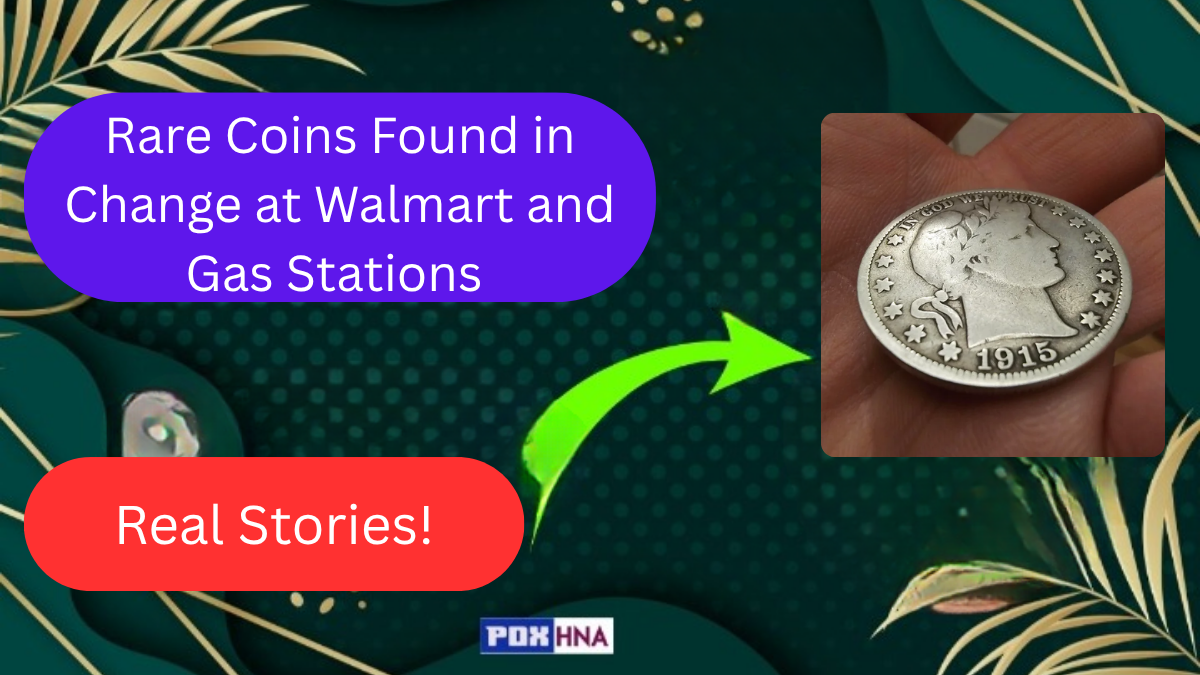Imagine buying a drink at a gas station or grabbing groceries at Walmart, only to receive a coin in your change that’s worth thousands of rupees. Sounds like a dream, right? But for many everyday people across the U.S., this dream has become a reality. Rare coins sometimes slip into circulation and end up in wallets, pockets, and cash drawers. Some collectors and lucky individuals have stumbled upon valuable coins during everyday purchases — turning ordinary shopping trips into once-in-a-lifetime discoveries.
Coin Name: Rare Coins Found in Daily Transactions
Coins that are mistakenly spent or accidentally released into circulation by collectors or the U.S. Mint often end up in the most unexpected places — like retail counters, self-checkout machines, or convenience stores. These coins include rare errors, old mintages, and unique varieties. Some of the most valuable coins found in change at places like Walmart or gas stations include the 1943 copper penny, the 1969-S doubled die Lincoln cent, and the 1982 no mint mark Roosevelt dime. The thrill of finding one of these rare coins makes everyday change exciting for treasure hunters and curious spenders alike.
Real-Life Discoveries at Walmart and Gas Stations
Many people have shared stories online about finding valuable coins in unexpected places. One collector reportedly found a 1999 Wide AM penny in change after a quick grocery run. Another person spotted a 1964 silver quarter while buying coffee at a gas station. These discoveries highlight how rare coins can still be hidden in plain sight — all it takes is a little attention and knowledge to spot them.
How to Spot a Rare Coin in Your Change
You don’t need to be an expert to start looking for rare coins in your change. Start by checking the date, mint mark, and condition of the coins you receive. Look for things like:
- Unusual errors (such as double dates or missing letters)
- Coins that look older or made from different metals
- Unique varieties like the “Wide AM” or “Close AM” pennies
Having a simple magnifying glass and a coin reference app on your phone can help you compare what you find with known rare types.
Rare Coins Commonly Found in Circulation
Here’s a quick reference table of rare U.S. coins that have been found in regular change and what makes them valuable:
| Coin Name | Year(s) | Value Range (₹) | Key Feature |
|---|---|---|---|
| 1943 Copper Penny | 1943 | ₹7,00,000+ | Copper instead of steel |
| 1969-S Doubled Die Penny | 1969 | ₹1,50,000+ | Strong doubling on “LIBERTY” and date |
| 1982 No Mint Mark Dime | 1982 | ₹20,000 – ₹40,000 | Missing mint mark under Roosevelt |
| 1999 Wide AM Penny | 1999 | ₹10,000 – ₹25,000 | Space between “A” and “M” in “AMERICA” |
| 1964 Silver Quarter | 1964 | ₹2,000 – ₹8,000 | Made of 90% silver |
Rare coins aren’t just locked away in collections — they’re out there in the real world, sometimes hiding in the loose change you get from Walmart or the gas station around the corner. Stories of real finds show that valuable coins do turn up in everyday transactions. By learning what to look for and taking a few extra seconds to inspect your change, you could uncover a small fortune where you least expect it. So the next time you get coins back from a purchase, take a second look — you might be holding a hidden treasure in your hand!
FAQ’s:
Can I really find rare coins at gas stations or Walmart?
Yes! Many rare coins accidentally slip into circulation and have been found in everyday change during transactions at stores and gas stations.
What is the most valuable coin found in circulation?
One of the most valuable is the 1943 copper penny, which has sold for over ₹7,00,000 due to its rarity and minting error.
How can I tell if a coin is rare?
Look for unusual features like double dates, no mint marks, or odd spacing in words. Use coin reference guides or apps for help.
Are older coins always valuable?
Not always — a coin’s value depends on its rarity, demand, minting error, and condition, not just its age.
